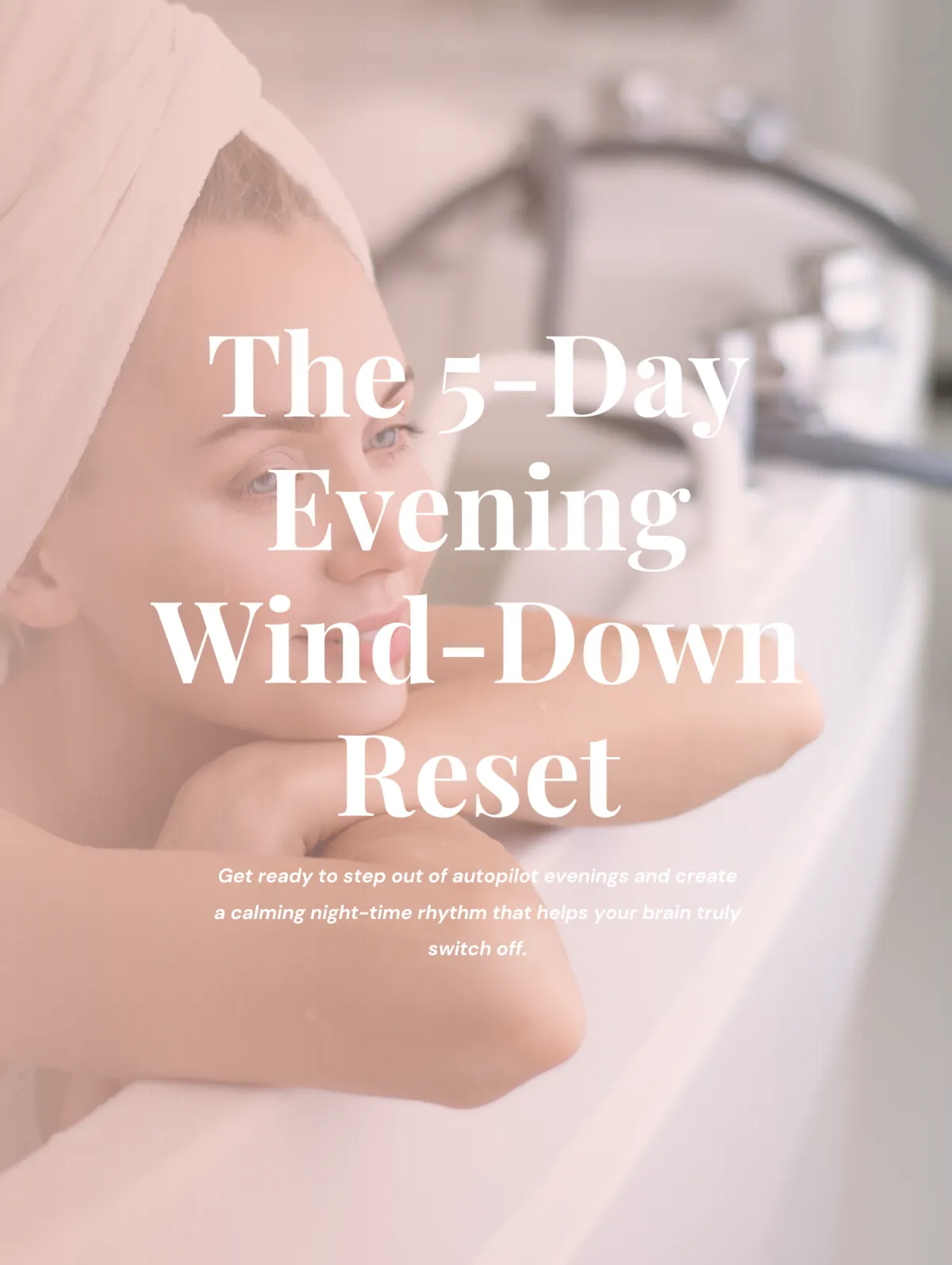
5 Ways To A Drama-Free Evening For Better Sleep (And Brain Renewal)
"Chronic sleep and dream deprivation predisposes us to perceive, think, and act in ways that stimulate the compensatory over-production of adrenaline. Gratuitous drama offers a temporary, quick fix for daze, but like sugar and caffeine, it eventually backfires." - Dr Rubin Naiman, retired psychologist and clinical assistant professor of medicine at the University of Arizona Andrew Weil Center for Integrative Medicine and author of Healing Night.
Picture this: It’s the end of a long day, and all you want is to relax. You scroll through social media, watch a gripping drama on Netflix, or catch up on the evening news. Maybe you even rehash a disagreement with a family member before bed. You finally crawl under the covers, but your mind won’t switch off. You toss and turn, wake up groggy, and wonder why you don’t feel rested.
Sound familiar?
What you may not realise is that these seemingly “normal” evening habits are actually setting you up for a restless night. Let’s look at why - and what you can do to reclaim truly restorative sleep.
The Science: How Evening Drama Hijacks Your Brain
When you watch something intense, scroll through emotionally charged posts, or get into an argument, your brain can’t tell the difference between entertainment, opinion, and real danger. Your amygdala - your brain’s built-in alarm system - perceives drama as a threat, triggering a surge of cortisol and adrenaline.
These stress hormones prepare your body for “fight or flight” and tell your brain that it’s not safe to relax. That cortisol surge has a direct effect on your sleep:
It suppresses melatonin, the sleep hormone you need to drift off easily.
It keeps your heart rate and blood pressure elevated, making deep sleep harder to achieve.
It disrupts your REM and slow-wave sleep, the stages where your brain detoxifies, consolidates memories, and repairs itself.
Over time, regularly flooding your system with evening drama can leave you in a cycle of poor-quality sleep, brain fog, irritability, and lowered resilience.
The Hidden Evening Sleep Saboteurs
Evening habits that feel relaxing in the moment may be keeping your brain on high alert. Doomscrolling and catching up on the news, for example, can fill your mind with worrying stories and negative headlines that trigger your stress response, leaving you feeling unsettled rather than soothed.
The same goes for the television shows and movies you choose. Cliffhangers and intense dramas may be entertaining, but they keep your nervous system in “fight or flight” mode, making it difficult for your body to wind down.
Social media scrolling can be another hidden stressor. Emotional posts, divisive content, or endless comparisons can overstimulate your brain and heighten cortisol levels, even if you’re simply trying to pass the time.
And perhaps most overlooked are arguments or emotionally heavy conversations at night. Processing conflict or strong emotions in the evening can raise cortisol levels just when your body should be preparing for sleep, leaving you wide awake and restless.
Ultimately, your brain doesn’t distinguish between a cliffhanger, a comment thread, or a genuine threat - it responds to all of them as if you’re in danger.
Brain-Healthy Evening Alternatives
Instead of filling your evenings with drama or tension, here are five intentional swaps to help your brain feel safe and ready for rest:
1. Be Strategic With The News
Try limiting your news consumption to once a day, ideally before dinner. The news is designed to grab your attention, often by highlighting alarming or emotionally charged stories. While it’s important to stay informed, taking in upsetting content late at night raises cortisol and keeps your brain in “threat mode,” making it harder to feel safe and relaxed. Setting a clear boundary around when you consume the news gives your nervous system time to settle before bed.
2. Limit Social Media Time
Scrolling through social media in the evening can be surprisingly stressful, as it exposes you to emotional content, negativity, and even subtle comparison stress. By setting a “digital sunset” - a specific time to put your phone down - you’ll allow your brain to shift out of stimulation mode and into rest mode. Try replacing scrolling with calming activities like hobbies, flicking through magazines or recipe books, doing puzzles, or writing in a journal.
3. Choose Programmes With Care
Being intentional about what you watch in the evening can dramatically improve your sleep quality. Opt for lighter shows, documentaries, or uplifting content, rather than high-drama entertainment that keeps you mentally wired. You might also experiment with a “no TV after 9pm” rule or switch off the television entirely.
4. Delay Difficult Conversations
Tackling emotionally charged discussions in the evening can be exhausting for both your brain and your relationships. Instead, make a family agreement to save sensitive topics for the morning. After a good night’s sleep, serotonin levels are higher, and your brain is in a better position to approach conversations with patience and perspective.
5. Pause Emotional Processing
When heavy thoughts or emotions surface late at night, it’s tempting to try and work through them right then and there. But late evening is not the ideal time for deep emotional processing - serotonin is lower, cortisol is more likely to spike, and your brain is less equipped to problem-solve. Give yourself permission to “shelve” these thoughts until morning. A simple strategy is to jot them down in a notebook, reassuring your brain they won’t be forgotten, which helps you relax and let go.
By putting these practices into place, you train your nervous system to associate evenings with calm and safety, making it easier for melatonin to rise naturally and paving the way for deep, restorative rest.
A Fresh Way To End The Day
Your evenings set the tone for your brain health - not just today, but for years to come. Sleep is when your brain detoxifies, repairs connections, and solidifies memories. Protecting this precious time is one of the most powerful ways to stay sharp and resilient as you age.
Even a small change in your evening routine - like turning off your phone an hour earlier or skipping the news after dinner - can dramatically improve your sleep quality in just days.






